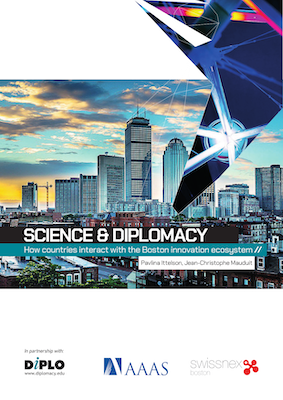Note: This article is a part of the publication ‘Science diplomacy capacity development: Reflections on Diplo’s 2021 course and the road ahead’
The interrelation between science and international affairs has become increasingly apparent, especially after the COVID-19 pandemic which has brought about many unprecedented challenges to the world. This pandemic alone has made it evident that collective and cooperative global scientific efforts are of paramount importance when it comes to dealing with a non-traditional transnational issue, and yet it is just one amongst many issues. Others include climate change, lack of food and water security, biodiversity loss, achieving sustainable development, and the threat of nuclear weapons, all of which have scientific grounds and have become the center of international discussions on both bilateral and multilateral levels. As a diplomat, Science Diplomacy is hence relevant now more than ever.
I registered Diplo’s online course with the above in mind. Throughout the course, I’ve learned that there are many ways science and diplomacy can cross paths but, in one categorization by the Royal Society, the connection between the two fields can be classified into the three types of activities, namely ‘science in diplomacy’, ‘diplomacy for science’, and ‘science for diplomacy’ (Royal Society, 2010, p. vi). First, ‘science in diplomacy’ can be demonstrated by the crucial role scientists play in informing foreign policymakers and diplomats with scientific advice.
With the ever-increasing science-related international dialogues, scientists have become important actors in addition to conventional actors like policymakers and diplomats who are assumably less well-versed in technical and scientific knowledge. Second, ‘diplomacy for science’ is indicated in the way diplomatic cooperation allows for the establishment of many scientific collaborations, which consequently boosts the exchange of experience, good practices, and the creation of pioneering projects, leading to more research findings and groundbreaking discoveries. Finally, an example of ‘science for diplomacy’ would be how scientists through ‘track two’ diplomacy can play an important role in boosting understanding, and easing conflicts, between countries.
With scientific innovation constantly advancing, Science Diplomacy will only become more integral in international relations in the future. In order to effectively maneuver Science Diplomacy, bringing all the relevant stakeholders together by establishing a network across the science, diplomacy, and policy nexus is crucial. For example, In Cambodia, the country I am from, the Ministry of Industry Science Technology and Innovation is responsible for science and technology-related subject matters, while the Ministry of Foreign Affairs bears the mandate to implement foreign policy.
Thus, cooperation between the two is indispensable in the practice of Science Diplomacy. Bridging two institutions with inherently distinct natures and fields of practice can be a challenge and a ‘boundary spanner’, someone who works at the interface, is critical in working as a bridge that connects two ministries. As a diplomat who recognises this fact, I wish to work to connect science and diplomacy, either through relying on scientific advice for more impactful and effective foreign policy or utilizing diplomacy to encourage and facilitate more scientific cooperation. Using what I have learned on this course, I look forward to becoming an effective boundary-spanner who is able to foster exchanges, build trust, effective communication, and collaborations between scientists and diplomats.
With many pressing global issues remaining unsolved, Science Diplomacy is incredibly valuable and essential for the future of the world. As a diplomat, one should at least be able to grasp the concept and the practice of Science Diplomacy, even if not directly involved. The trend of diplomacy has changed, and traditional diplomacy, with only diplomats as its agents, is no longer sufficient. Diplomats and scientists need to work together to find innovative solutions for the protection and betterment of the world.








